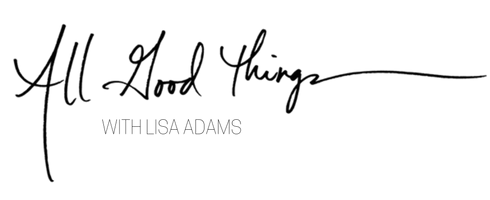Did you watch the television show The Good Place? I was told it was right up my All Good Things alley, so during the pandemic I finally indulged in its four season series. I finished it months ago but its lessons have stayed with me.
This past election week has more than likely had you all topsy turvy. No matter whose candidate lost or won, I keep thinking about the ideas of right and wrong. With the Hindu celebration of Dawali beginning today, my thoughts have expanded to the triumph of good over evil.
In The Good Place, there’s a big theme of ‘moral dessert.’ This means if you act with virtue, you deserve a reward. So there’s a motivation to be good instead of acting virtuous for virtue’s sake.
There’s such division in America right now because many of us have misplaced our moral code. A moral code is a consistent set of rules prescribing righteous behavior accepted by a person or by a group of people. But what’s righteous? Accepted by whom?
This little guy was in a video someone made shining light on BLM and I’ve saved it in my phone to remind me to choose kindness.
The Good Place posits that there’s a voice in our head that doesn’t tell us what to do or not do, but instead it warns us when we do things that don’t feel good or right. The Disney classic Pinocchio named this voice Jiminy Cricket. He was Pinocchio’s conscience, guiding him in the right direction.
We are not in this alone in this world. But what do we owe each other? Human decency. Equality. But why choose to be good if there is no reward we can count on in the after life? A moral dessert. Our bonds with other people — neighbors, friends, partners, family, and even strangers — should come with an innate desire to treat everyone with dignity. 2020 has shown us beautiful examples of this, but it has also revealed that many people are just in it for themselves, putting their own needs and wants before others. It has been very hard to wrap my mind around this great divide in our society.
It helped for me to think back to The Good Place. In one of the episodes, the creator Michael Schur has the character Chidi break down the concepts of ethical theory and moral dilemma. These words make even more sense given our current political climate.
As humans evolve, the first big problem we had to overcome was "me vs. us" — like learning to sacrifice a little individual freedom for the benefit of a group. Like sharing food and resources so no one starves. The next problem to overcome is "us vs. them” — like trying to see other groups that may appear different from our group as equals. That one we’re still struggling with. Us vs Them. That’s why we have racism and nationalism.
Western philosophers formed three main theories on how to live an ethical life.
Virtue ethics. Aristotle believed that there were certain virtues of mind and character like courageousness or generosity and people should try to develop themselves in accordance with those virtues.
Consequentialism is the basis for judgment of whether something is right or wrong is determined by the consequences of that action. In other words, how much utility or good did it accomplish vs. how much pain or bad.
Lastly, the Diontolgy school of thought reasons that there are strict rules and duties that everyone must adhere to in a functioning society. Being ethical is simply identifying and obeying those duties and following those rules.
Today marks the beginning of Diwali. This is the Indian festival of lights, usually lasting five days and celebrated during the Hindu Lunisolar month Kartika. One of the most popular festivals of Hinduism, Diwali symbolizes the spiritual "victory of light over darkness, good over evil, and knowledge over ignorance". What a perfect opportunity to examine our own light and dark sides, to see where we fall in between ethical theories, and to ensure our goodness can triumph over our personal moments of evil.
I’m hoping the topsy-turviness of our lives and our country rights itself soon. The uncertainty and chaos of 2020 is truly an opportunity to come together and choose kindness. I’ll leave you with this last nugget of inspiration.
The Good Place ended with its lead character Eleanor Shellstrop saying, “The more human I become, the less things make sense. But that’s part of the fun, right? I guess all I can do is embrace the pandemonium — (a reference to Milton’s Paradise Lost) — and find happiness in the unique insanity of being here. Now.”
It’s Diwali in my kitchen too! I made an Indian ‘moral dessert’ for Stoneridge Orchards using their Montmorency cherries.
Carrot Halva With Dried Cherries
An Indian sweet treat that’s a healthier dessert when you’re craving pudding or a slice of carrot cake. It’s normally made with raisins, but the dried cherries are the perfect swap out! Halva shows up on breakfast menus as well. Stir into your morning oatmeal or yogurt.
Ingredients:
2 Tablespoons butter or ghee
2 cups grated carrots
1/2 teaspoon ground cardamom
1/2 teaspoon ground cinnamon
1 cup milk
1 Tablespoon brown sugar
1/4 dried coconut
1/4 cup chopped Stoneridge Orchards Montmorency dried cherries (plus more for garnish)
1/4 cup chopped toasted pistachios (plus more for garnish)
On medium heat, melt the butter or ghee in a small skillet. Add the carrots, stirring to coat. Cook for 5 minutes until the carrots begin to soften. Stir in milk, spices, brown sugar, dried coconut, and cherries. Reduce to low heat once the milk comes to a boil. Continue cooking and occasionally stirring until the milk is absorbed and evaporated. Garnish with chopped cherries and pistachios. Serve warm.






